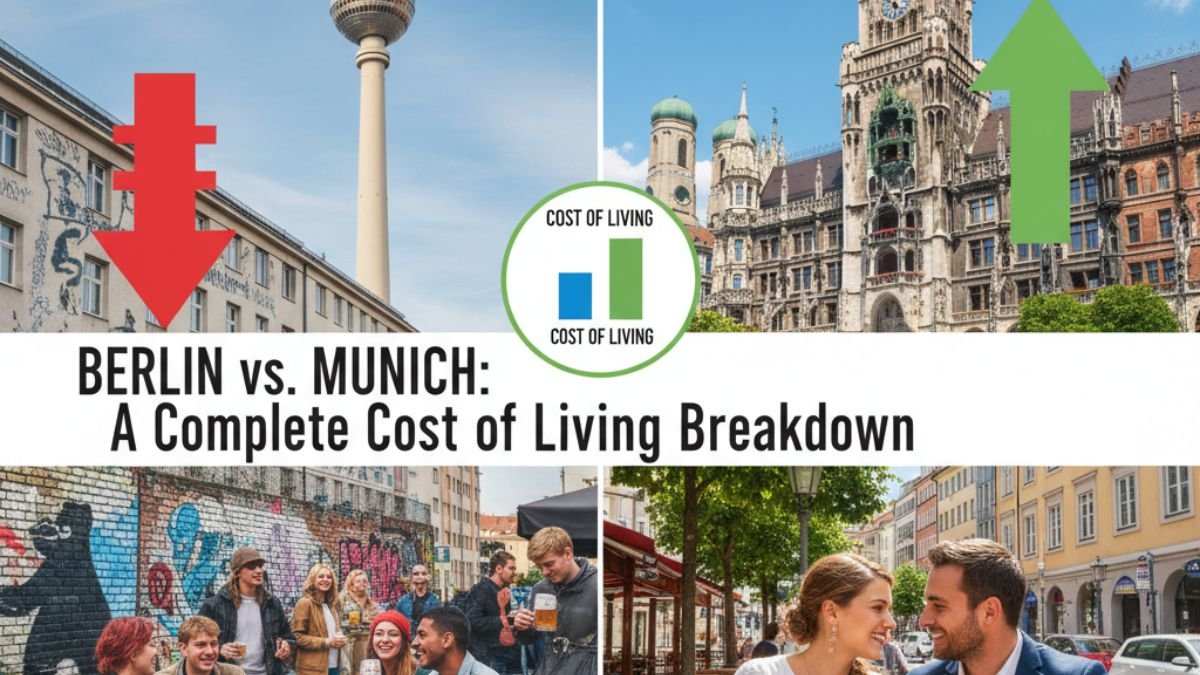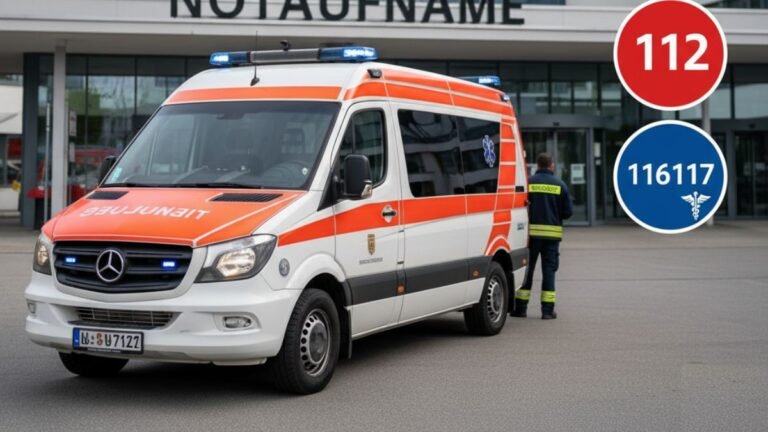Berlin vs. Munich: A Complete Cost of Living Breakdown (2025)

Germany’s vibrant capital, Berlin, and its prosperous Bavarian counterpart, Munich, perennially rank among the most desirable cities to live in. Yet, they offer vastly different lifestyles at significantly different price points. For anyone contemplating a move to one of these German powerhouses in 2025, understanding the financial landscape is crucial. This comprehensive breakdown delves into the cost of living in Berlin and Munich, comparing everything from the essentials of housing and groceries to the nuances of leisure and childcare, helping you make an informed decision.
The Bottom Line: Munich is Notably More Expensive
Before diving into the specifics, the overarching theme is clear: Munich’s cost of living is considerably higher than Berlin’s. Estimates from various sources in 2025 indicate that you would need approximately €4,900 a month in Munich to maintain the same standard of living that €3,800 would afford you in Berlin, excluding rent. This disparity is primarily driven by the staggering difference in accommodation costs.
Accommodation: The Great Divide
Housing will be your biggest expense in both cities, but the gap between them is substantial. Munich consistently ranks as Germany’s most expensive city for renters, a trend that continues into 2025.
Munich
The average rent for a one-bedroom apartment in the city center hovers around a steep €1,500 to €2,000 per month. In desirable neighborhoods, this can easily climb higher. Even outside the city center, expect to pay between €1,200 and €1,500. The average rent per square meter in Munich is approximately €25-€30.
Berlin
While no longer the budget paradise it once was, Berlin remains significantly more affordable than Munich. A similar one-bedroom apartment in the city center will set you back €1,000 to €1,500 per month. Venture out to less central but still popular districts, and you can find options for €800 to €1,200. The average rent per square meter in the capital is a more manageable €15-€20.
Groceries and Food: A Tale of Two Shopping Carts
When it comes to stocking your pantry, the price difference is less dramatic but still noticeable. On average, groceries in Munich are about 10-15% more expensive than in Berlin.
Here’s a look at some estimated average prices for common grocery items in 2025:
| Item | Berlin | Munich |
| 1 Liter of Milk | €1.10 | €1.25 |
| Loaf of Bread | €2.00 | €2.50 |
| 12 Eggs | €3.00 | €3.50 |
| 1kg Chicken Fillets | €9.00 | €10.50 |
| 1kg Apples | €2.50 | €3.00 |
Dining out also reflects this trend. A meal at an inexpensive restaurant in Berlin might cost you around €10-€15, while the same would be closer to €12-€18 in Munich. A three-course meal for two at a mid-range restaurant could be €50-€70 in Berlin, compared to €60-€80 in Munich.
Transportation: Getting Around Town
Both cities boast excellent and efficient public transportation systems. For a monthly pass, you can expect to pay around €49 in both Berlin and Munich for the “Deutschlandticket,” which allows for nationwide travel on regional trains and local public transport.
However, if you are only considering city-specific tickets, a regular monthly pass for the central zones in Berlin costs around €99, while a similar IsarCard in Munich is approximately €69.90. It’s important to check the specific zones you will be traveling in, as prices vary.
The cost of a one-way ticket is also comparable, typically ranging from €3.00 to €3.50 in both cities. Taxis and ride-sharing services follow a similar pattern, with Munich being slightly more expensive.
Utilities and Communication: The Necessary Bills
The cost of basic utilities, including electricity, heating, water, and garbage, for an 85m² apartment, is roughly the same in both cities, averaging between €250 and €350 per month.
Internet and mobile phone plans are offered by national providers, so you will find similar pricing in both Berlin and Munich. Expect to pay between €30 and €50 per month for a decent broadband connection and €20 to €40 per month for a mobile plan with a good data allowance.
Leisure and Entertainment: Your Free Time Budget
The cost of enjoying your downtime will also be higher in the Bavarian capital.
- Dining and Nightlife: As mentioned, eating and drinking out is more expensive in Munich. A pint of beer in a Berlin pub will cost you around €4-€5, while in a traditional Munich beer garden, it could be €5-€6.
- Cultural Activities: Museum and gallery entrance fees are generally in a similar range in both cities, often between €10 and €15. However, Munich’s world-class museums can sometimes have slightly higher admission prices.
- Fitness: A monthly gym membership in Berlin averages €25-€40, whereas in Munich, you’re likely to pay €35-€50 for a comparable facility.
- Cinema: A movie ticket will set you back around €10-€14 in Berlin and €12-€16 in Munich.
Childcare: A Significant Consideration for Families
For families with young children, childcare costs can be a major factor. Here, Berlin has a distinct advantage. Childcare in public “Kitas” (daycare centers) is largely free of charge in Berlin, with parents only contributing a small monthly amount for food.
In Munich, while there are subsidies available, childcare is not entirely free. The costs can vary significantly depending on the type of facility and the parents’ income, but you can expect to pay several hundred euros per month per child.
Salaries and Job Market: Earning Potential
While the cost of living is higher in Munich, so are the average salaries. Munich is a major economic hub, home to numerous multinational corporations, particularly in the automotive, technology, and insurance sectors. This translates to higher earning potential, especially for experienced professionals in in-demand fields.
In 2025, the average gross salary in Munich is estimated to be around €60,000 to €70,000 per year, while in Berlin, it’s closer to €50,000 to €60,000. However, it’s crucial to research the specific salary expectations for your profession in both cities, as the higher salary in Munich may not always fully offset the increased cost of living, especially the high rental prices.
The Verdict: Lifestyle vs. Budget
Ultimately, the choice between Berlin and Munich depends on your personal priorities and financial situation.
Choose Berlin if
- You are on a tighter budget, especially in the early stages of your career.
- You value a more alternative, creative, and vibrant arts and culture scene.
- You want to experience a more international and less traditional German city.
- Affordable childcare is a top priority.
Choose Munich if
- You have a higher earning potential and can comfortably afford the higher cost of living.
- You prefer a cleaner, more traditional, and perhaps more family-friendly environment.
- You want to be close to the Alps for outdoor activities.
- A strong economy and a high concentration of major corporations are important for your career.
By carefully weighing these financial factors against your lifestyle preferences, you can decide which of these two incredible German cities is the right fit for you in 2025.
If you’re looking for more blog subscribe to join us.






